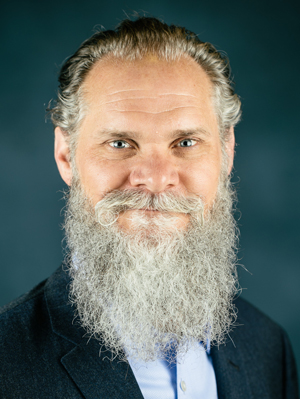 Fred Keller
Fred Keller
Vice president, HCA Contracting
HealthTrust
Nashville, Tennessee
About Fred Keller:
Born and raised in Texas, Fred Keller has over 25 years of experience in the healthcare industry in operations and contracting. In his current position, he helps manage over $8 billion in expense spend annually for HCA Healthcare, and he leads the corporate and division contracting teams that develop solutions for HCA’s cost management initiatives.
He began his healthcare career at a facility in Houston in 1994. “I needed a job,” he says. “But within six or seven months, I realized ‘There’s a lot to do here.’ I felt it was something I could spend a career doing.” He joined HCA in 1996. “Supply chain touches all aspects of a provider’s business, and being able to impact and stay engaged across a hospital’s enterprise has been thoroughly rewarding. We have the opportunity to be a part of bettering lives…and HCA Healthcare has always welcomed supply chain taking an active part in that mission.”
Keller received his bachelor’s degree from the University of Colorado in Boulder.
About HCA Healthcare:
HCA Healthcare, Inc. owns and operates 185 hospitals and approximately 230 ambulatory or alternate-care sites.
Most challenging/rewarding project in the past 12-18 months:
“Our collaboration with our cardiovascular service line has been an exceptional experience. Being included as a contributing leader to not only our cost and supply initiatives, but to a holistic business strategy including growth, service development, clinical performance and resource balance … I have learned so much and received such valuable insight.”
Looking forward to:
“Providing more technology insight to our operations teams as well as our payer and regulatory experts. There is a great deal to know and understand as things evolve. How will delivering care change? What new services will we need to provide? What new technology, products, equipment, etc., will create not only opportunities, but challenges?
“We are trying to help various teams within HCA be on the front end of learning about new products and how they may change the standard of care. We want to look at the pipeline so we know when these technologies are going to be commercially available, instead of learning about them eight months after the fact. We can structure better contracts when we learn about technologies ahead of time and gain an idea of how the government is likely to manage them from a reimbursement or indication perspective. All constituents – payers, providers, patients, physicians – benefit by being thoughtful instead of reactive, and by taking the time to understand where new technology really fits.”
How are you better at practicing your profession today than you were 5-10 years ago?
“I listen more. I trust more. But I expect more. I have made every day more about thinking and solving and surrounding myself with people who are better than me. It has also been more about helping younger and newer leaders in this profession experience things in a controlled manner, so they can learn and gain confidence in the capabilities they will need in the future.”
What are the challenges or opportunities facing the next generation of supply chain executives?
“Supply chain in healthcare has come a long way over the last 20 years, and no other industry has the dynamics, politics, or personal impact in affecting lives as much as medical care. We need it and depend on it from birth, through life and up until death. Professionals who will be responsible for moving this forward in supply chain will have to be a part of solving for systemic change, culturally and socially. Supply chain solutions will need to be new and unique. To get there, we will have to learn a great deal from other industries and we will have to learn about technologies that can support our efforts. Ultimately, we will have to be able to strategically solve questions with new answers that include things we have never thought of or done before.
“Our teams manage contracting as a byproduct of managing larger relationships with our constituents and suppliers. Contracting becomes a lot easier when you are engaged with the people making decisions about the service line and its future – as we were with cardiovascular. I would tell a young person to find time to have a dialogue with the people who are influencing a service line. It makes your task – contracting – easier, because it raises the value of your contracting expertise. You are seen as being more intimately invested – and influential – in what they’re doing.”
